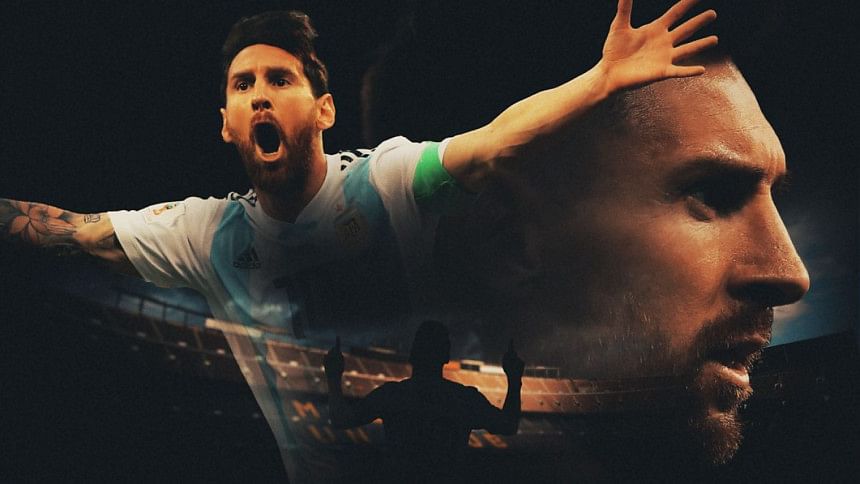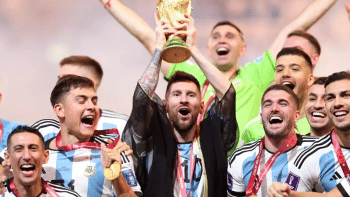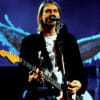BBC documentary sheds light into the life of Lionel Messi

Lionel Messi's life has intrigued fans over the years. Alluring on the pitch, the GOAT is especially shy off it, preferring to stay away from the limelight.
BBC Sport's documentary, Messi, explores not only the upbringing of Lionel Messi but also sheds light on his amazing career. Settling down to watch it, fans will get hooked by the montage of clips, which includes snippets of skills from his childhood, as well as the iconic goals he scored and the trophies Messi won over the years.
The hour-long documentary takes fans on a journey that dives into the life of Leo Messi, the human, heard straight from those who have seen him evolve over the years.
As journalist Christian Martin and Messi's childhood friend Walter Barrera describe, Leo's childhood in the tough working-class neighbourhood of Rosario was far from smooth sailing. Despite difficulties, which saw him separated from his family and friends at the age of just 13, Messi's competitive persona and natural talents stood out. It ultimately earned him a move to Barcelona in 2000, a deal famously signed in a paper napkin by the then Barcelona Director of Football while Messi was trialling with La Masia, Barcelona's fabled youth academy.
Messi also sets the record straight regarding Leo's growth hormone issue. From his childhood, Messi had growth hormone deficiencies, preventing him from growing taller. Dr Diego Schwarzstein explains how Argentina's social network collapse nearly stopped his treatment, and how Barcelona supported him so he could realise his full potential.
Messi stood out from his first session in La Masia, with Messi's friend and former teammate Cesc Fabregas admitting he was taken aback by Messi's abilities and pace, realising that he was witnessing someone really special. His performances for the youth teams got him his first professional contract at the age of just 16.
This marked the beginning of an odyssey. Coming into a star-studded team, Messi got his early football mentorship from a certain Ronaldinho and Deco. His career truly hit a peak under the guidance of Frank Rijkaard and Pep Guardiola. Guided by their tactical nous, the world saw the brilliance and tactical versatility of Leo Messi as he realised his potential to dominate world football.
According to Xavi, Messi is the standard for a number 10. He also added that much of Messi's success was down to Cristiano Ronaldo, who, despite their mutual admiration, pushed each other with their performances.
On the international stage, Messi's career has been heart-wrenching. Until the Copa America success of 2021, Argentina failed in every tournament in a painful fashion. Things turned worse after the 2014 anguish in Brazil when Argentines unfairly turned against him for 'not putting enough effort into the national team.'
That episode showed the human nature of Messi, who, despite his astronomical success on the field, was just like the rest of us off it – a shy, quiet family man trying to lead his own life. The barrage of insults forced him to announce retirement in 2016, which he ultimately backtracked on due to his undying love for Argentina, with whom he desperately wanted to win trophies.
Messi's humbleness has been thoroughly depicted throughout the documentary, with Rosario natives saying how proud they are of Messi's brilliance and philanthropy. Messi never forgot who he was despite the Ballon d'Ors or Champions Leagues he won. Instead, he was respecting Argentine cultures and traditions despite living in Europe for much of his life.
As is the norm for any generation of footballers, Messi has been consistently compared to Maradona. Many Argentines even wanted him to be Maradona, which he delivered on the field. Off the field, he is the polar opposite of the extrovert, troublesome Diego with his introverted nature gaining prominence. A comparison of the 2010 and 2014 World Cups will show their different philosophies.
In South Africa, Maradona provoked people and always looked for trouble and created conflicts when he was the manager of Argentina. Messi, as the Albiceleste captain in Brazil, remained cool-headed as he steered clear of disturbances.
Many questioned Messi's quietness despite being a leader, but what they fail to understand is that he does more with his actions on the field than he could possibly have done screaming at his teammates.
With Qatar 2022 being Messi's 'Last Dance' on the world stage, fans and players hope Messi can put his past demons to bed and cement his legacy by winning the FIFA World Cup.
Inqiad is a passionate Bucks fan and a certified Giannis stan. Contact him at [email protected]

 For all latest news, follow The Daily Star's Google News channel.
For all latest news, follow The Daily Star's Google News channel. 









Comments